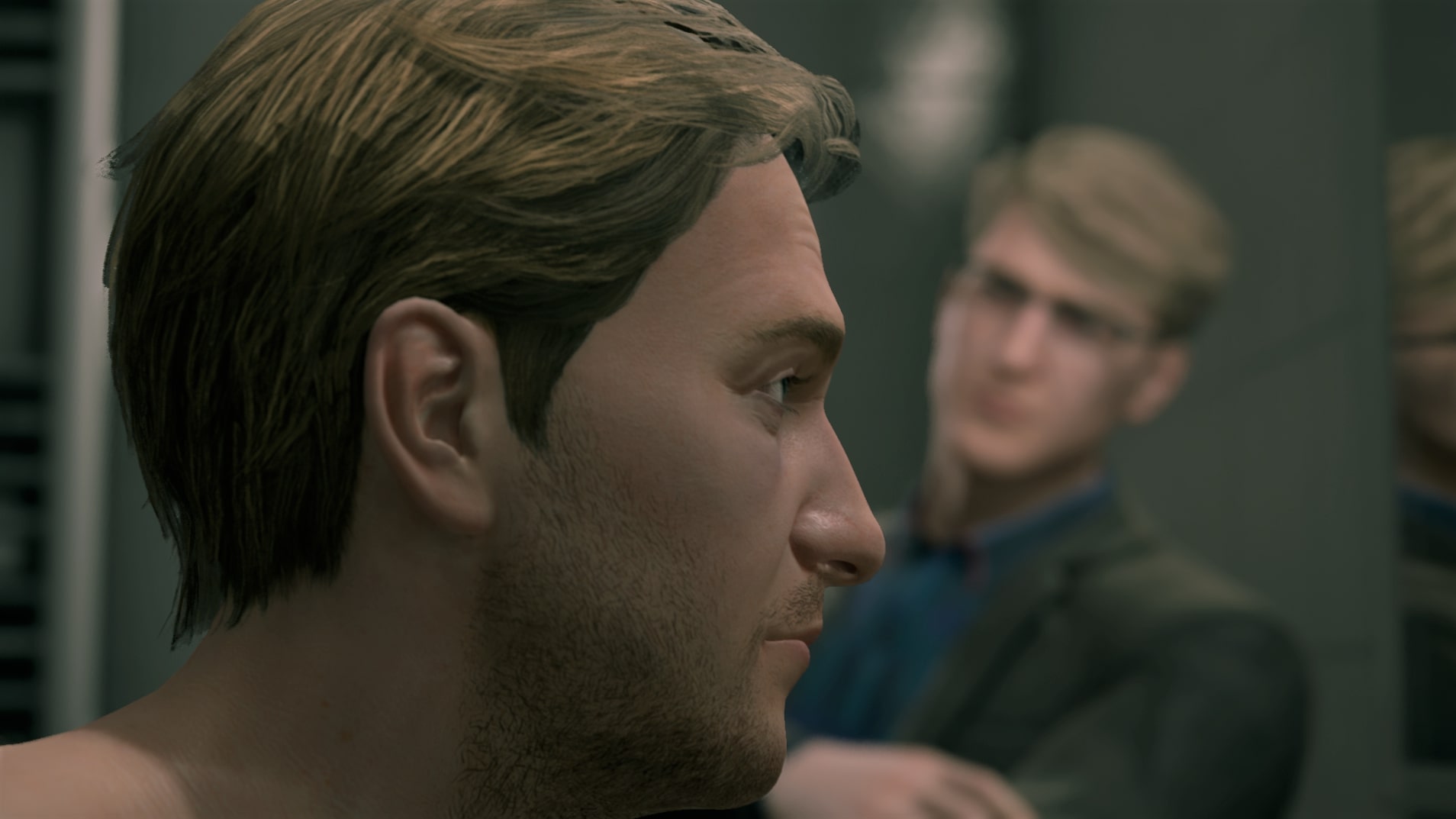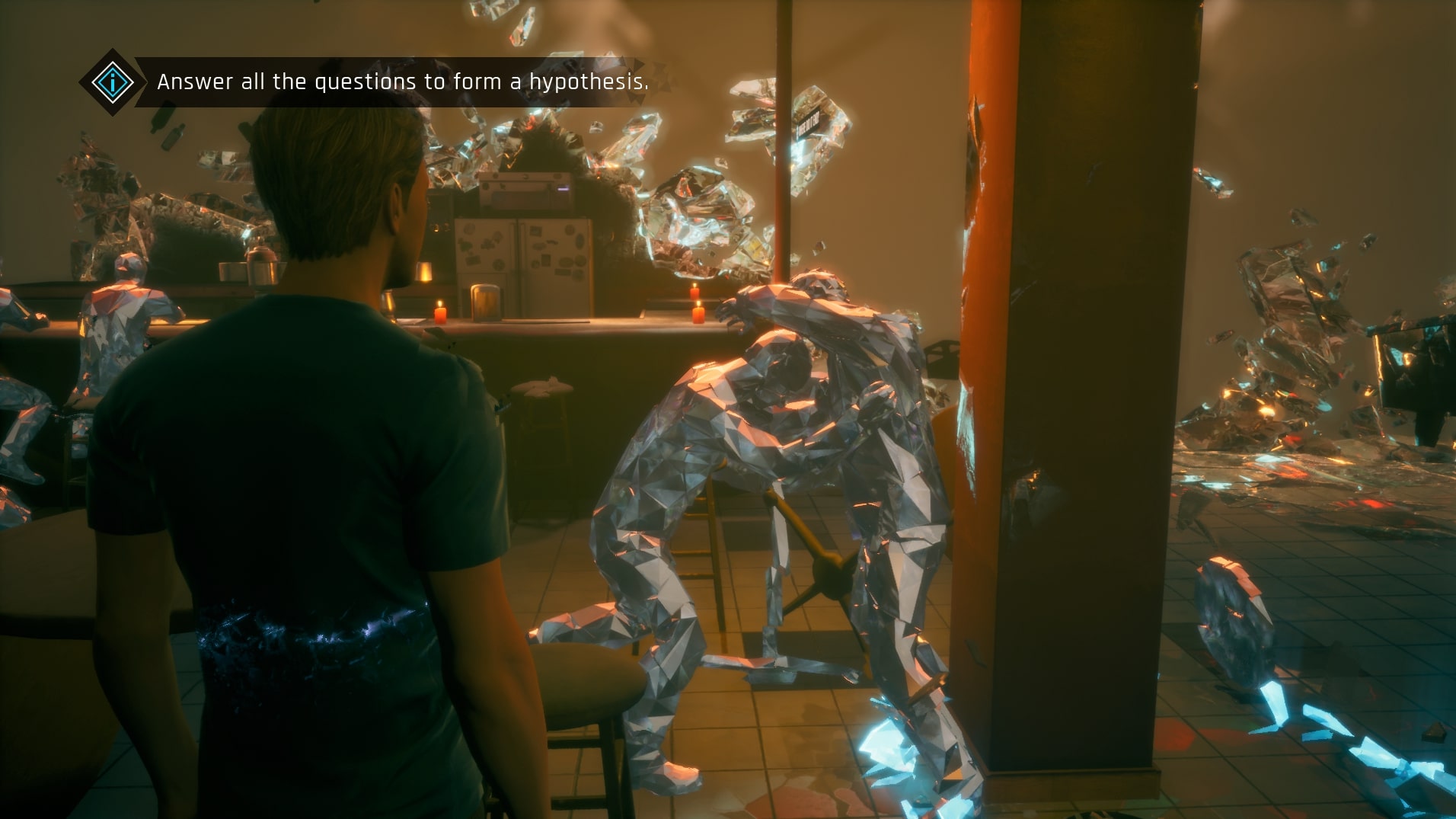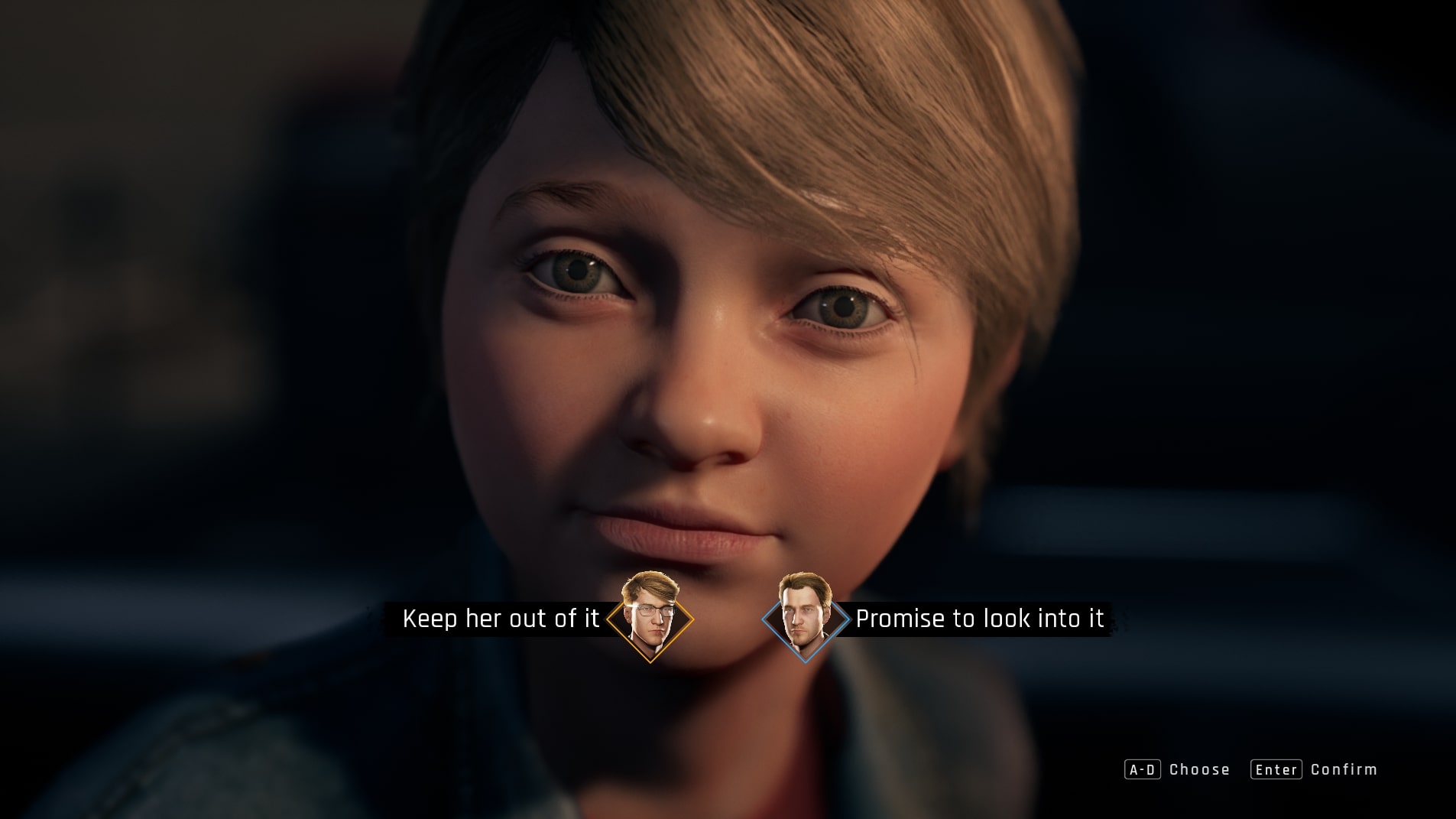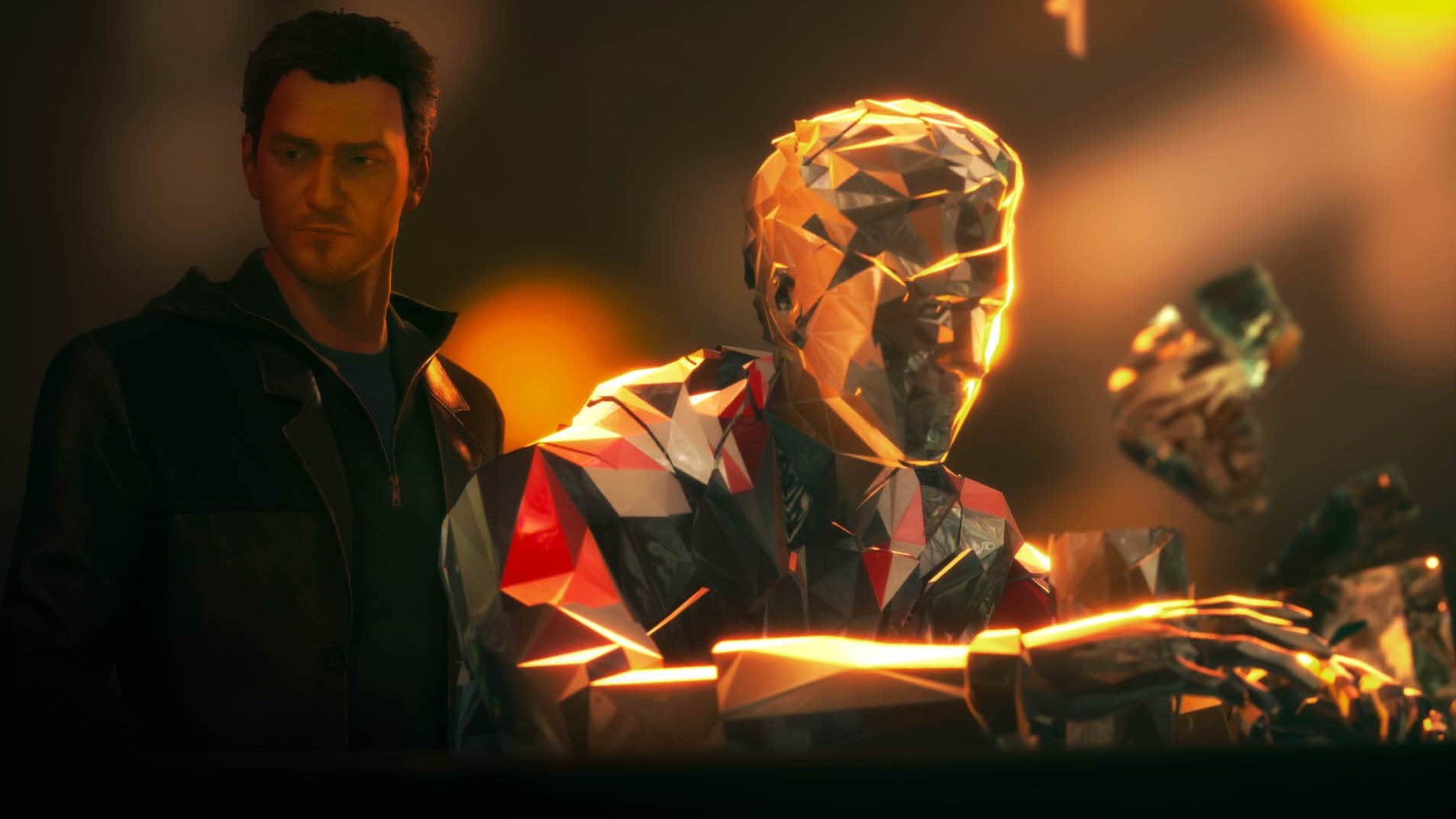Our Verdict
Twin Mirror begins with an intriguing set-up but, disappointingly, ends up going nowhere.
PC Gamer's got your back
What is it? A psychological mystery set in a small West Virginian town.
Expect to pay £28 / $37
Developer Dontnod
Publisher Dontnod
Reviewed on i5-2500K, 8GB RAM, GTX 670
Multiplayer? No
Link dont-nod.com/en/projects
Release date Out now
With Twin Mirror, Dontnod has left time travel, telekinesis and mind-reading behind, stepping away from the supernatural themes of its previous games and switching it up for grounded psychological drama. A story of mystery and conspiracy is well within the Dontnod's wheelhouse, but the studio's first self-published game is unfortunately a little underwhelming. It starts out as a great detective mystery, but its unwillingness to explore difficult topics with any depth is a big issue.
Twin Mirror follows former investigative journalist Sam Higgs as he returns to his hometown, Basswood, in West Virginia. After being MIA for two years, Sam's visit is far from a celebratory event. He's been informed that his best friend and fellow reporter Nick Waldron has passed away, so he drops by to pay his respects at the funeral. As Sam begins to explore his childhood home, he gets caught up in a bigger conspiracy involving his friend's death and the mining town's community and decides to follow the case until the end. The town isn't Sam's biggest fan. Before he bailed, he wrote an article exposing the lack of safety measures in the local mine, which led to it being shut down, leaving many people jobless and angry.

From Twin Mirror's opening hour, it's pretty clear that Dontnod has perfected the technique of laying out the foundations of a mystery. Before you attend the wake, Nick's daughter, and Sam's goddaughter, confides in him that she thinks something about her father's death feels off. Shortly after, you're introduced to the Basswood townsfolk, and with the idea of a conspiracy already worming its way into your brain, your investigation cap is firmly on as you begin to chat with the locals. It's a great set-up, the stage is set and you've met all the players, so it immediately starts your mind racing about who could be involved and why.
For the first hour or two, I was genuinely excited to solve this small-town mystery. I love the aesthetic of Basswood too, the mining town has an unglamorous West Virginian charm that makes everywhere a joy to explore. Its dingy dive bars, mountain viewpoints, and cheap hotel rooms are packed with information about Basswood's residents and the tough times they've been through. It paints the perfect portrait of a struggling town where community matters.

Detective work plays out similarly to exploration in Dontnod's previous games. You're dropped into a new area and need to walk around examining objects and finding clues. This mechanic works particularly well when you're getting to know the town, examining posters and looking at photos hung on the walls of bars, but when gathering evidence for your investigation it's far from streamlined. You always have to find evidence in a certain order, meaning that you'll be doing multiple laps of the same scene until you discover things at the right time.
After gathering up enough evidence, Sam will enter his mind palace (which involves closing his eyes and thinking really hard) and these sequences are a highlight of the game. The mind palace is where is a place where Sam can put his analytical brain to the test and can use the evidence gathered to reconstruct several possible sequences of events. Examining the different timelines that Sam has visualised, you need to decide which one is the truth and pick the one that plays out exactly how events went down. This can be anything from how a bar fight developed over the course of a ten-minute spat or the reason why a car inexplicably swerved off the road. Versions of this mechanic have been used in plenty of detective games before, but Twin Mirror's take on it, where you build scenes from shattered glass, stands out.

Head scratcher
Even though the evidence gathering is flakey, I went into the rest of the game excited to uncover the secrets of the sleepy town of Basswood. Unfortunately, the investigation never really cranks up—it barely gets going at all. There's no sense of crescendo or eureka moment where you crack the case—the investigation just fizzles out. There are plenty of story threads flying around, but none of them land. Sam never really addresses his guilt for destroying the town's main livelihood, for instance. Even after he's confronted several times by angry townsfolk who are suffering because of his decision, he never really engages with it head-on. Was it right to publish the truth at the cost of people losing their jobs? It's a tough question that the game sidesteps.
Never exploring these themes beyond the surface pretty much sums up Twin Mirror. There are moments inside Sam's mind palace where he shows guilt and compassion for the characters he's hurt, but they're in the form of vapid minigames, like running through empty doorways that say 'breathe' on them or trying to find your twin in a crowd of people.

Speaking of our mystery man, Sam's twin accompanies him throughout the game, but he exists solely in Sam's mind, piping up to provide another perspective on a situation. He's different from Sam in that he's more socially conscious, trying to keep his fleshy counterpart out of trouble and helping him navigate tricky conversations. He appears in key moments, where the player's decision is meant to impact the rest of the game. After trying different paths, however, I didn't notice much difference.
Many of the fears that I voiced in my Twin Mirror preview were about the representation of this character. Although the double is, thankfully, not part of a Jekyll and Hyde situation, Dontnod is deliberately coy when addressing what exactly Sam's double is. Throughout the game, Sam walks the line between trying to be his authentic self, and acting in a way that is 'socially acceptable.' His other half tries to stop Sam acting how he likes, voicing his disapproval when his bluntness rubs people up the wrong way.

It's not only Sam's bluntness that is at odds with his double; he also has problems reading people, occasionally places the truth ahead of characters' feelings, and struggles with the invisible social etiquette of conversations. Together with his analytical mind, this makes it seem like Twin Mirror is suggesting that Sam's on the autistic spectrum, and his struggles with staying true to who he is and social conformity run throughout the game. Although Dontnod's portrayal of Sam avoids the condescending and grossly misinformed tropes found in a lot of media, there are certain story decisions that make Sam feel like a ghost of that representation. Dontnod doesn't commit to this idea, only alluding to these topics instead of exploring them with insight and understanding.
There are some interesting ideas in Twin Mirror, but the game doesn't spend any time digging into its challenging topics. There's a foundation of a story about how we relate to others and the conflict of being authentic over being accepted, but ultimately it's all hollow.
Twin Mirror feels like a string of scenes sewn together with thin narrative threads, and is ultimately a game that says nothing, lacking any sort of commitment to subjects that it coyly alludes to. For a studio whose voice is celebrated for being loud and clear about improving representation in games, Twin Mirror a misstep for Dontnod.
Twin Mirror begins with an intriguing set-up but, disappointingly, ends up going nowhere.
Rachel had been bouncing around different gaming websites as a freelancer and staff writer for three years before settling at PC Gamer back in 2019. She mainly writes reviews, previews, and features, but on rare occasions will switch it up with news and guides. When she's not taking hundreds of screenshots of the latest indie darling, you can find her nurturing her parsnip empire in Stardew Valley and planning an axolotl uprising in Minecraft. She loves 'stop and smell the roses' games—her proudest gaming moment being the one time she kept her virtual potted plants alive for over a year.



